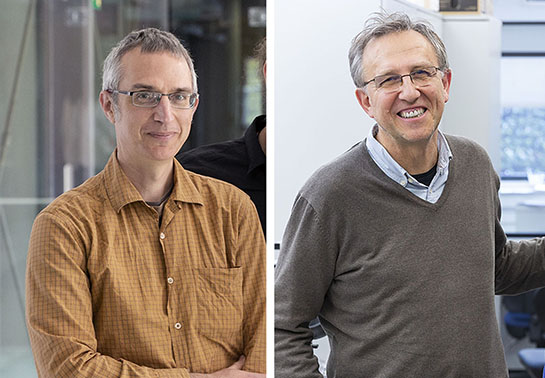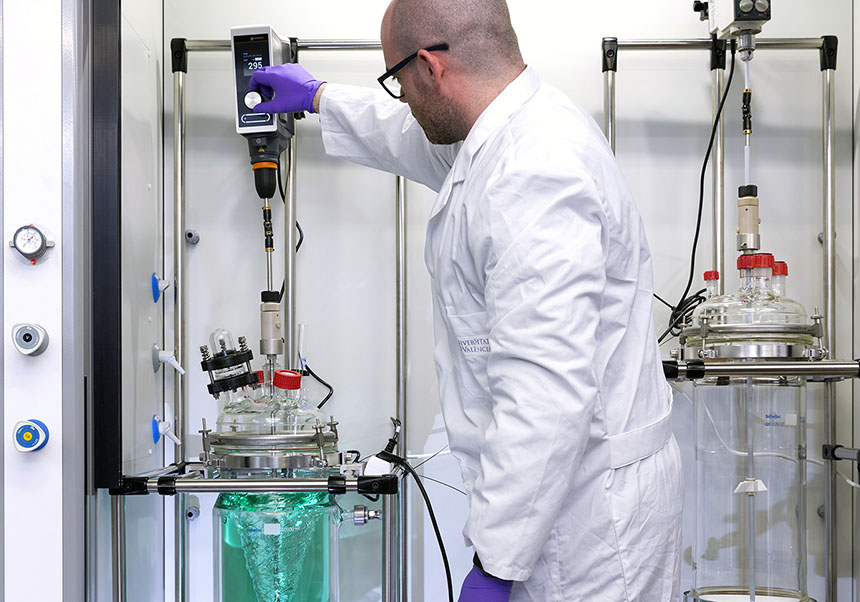Scientists from the University propose the use of magnetic molecules for the quantum computing
- Fundació Parc Científic
- April 11th, 2019

Scientists from the Institute for Molecular Science of the Universitat de València (ICMol) propose to use molecules, instead of atoms, to perform quantum computing. The work, a perspective that values the role of chemistry in the Quantum Technologies, has been just published in the Nature Chemistry magazine. The discovery, published on the Nature magazine, means another step towards one of the Holy Grails of the modern applied physics: the construction of quantum computers.
In particular, researchers propose to use molecules, instead of atoms, to perform quantum operations, taking advantage of the versatility of chemistry to design magnetic molecules that behave as quantic bits -or qubits- and that can be replicated in high numbers.
In comparison to computers and existing devices, which are based on transistors to process ‘bits’ of information with the form 0 and 1 binary, quantum computers predict an exponential growth of speed when doing computational tasks. The tremendous power of qubits -the quantum equivalent of the bit in informatics- could end leaving behind the current machines and revolutionising fields such as the computational chemistry or the cryptography, being the last, fundamental for the safety of communications.
These advances seem possible in the quantum world, where the physical laws are very different from the ones that govern the daily life of people. However, these quantum states are very fragile and sensible to the environment they are immersed in, and therefore the development of the very advanced devices that quantum mechanics predict turns out to be too much complicated to achieve.
The two main problems that the quantum computing has to face is, on the one hand, the difficulty to keep the sufficient time the quantum information, and on the other hand, being able to process it in order to perform quantum operations. In the article, scientific propose to use the versatility that chemistry offers to solve these problems. On the one hand, the custom design of a magnetic molecule with a controlled composition, form and geometry allows doing that these magnetic qubits last longer and are less sensitives to the environment (in other words that present quantic elevated coherences). On the other hand, chemistry allows preparing identic molecules in large quantities, assemble them in a controlled way and place them with high nanometre precision on a device which is able to control, read and meditate in communication between these molecular unities. Said “scalability’ allows to implement logic doors and to integrate then in devices with the aim to store and process information.
The work published in Nature Chemistry is a brief revision -a perspective- that values the role that chemistry can play in an emergent field that comes mainly from Physics: the Quantum Technologies. Its authors are an international team of physics and chemists formed by Alejandro Gaita-Ariño and Eugenio Coronado (ICMol, Universitat de València), Fernando Luis (ICMA, CSIC and University of Zaragoza) Steve Hill (National High Magnetic Field Laboratory and Department of Physics, Florida State University, Tallahassee, FL, USA).
The article is supported by the recent progress from the same research team, which includes achievements as the work published in Nature in 2016 about the design and the study of magnetic molecules of tungsten oxide, which acts as qubits and sometimes becomes insensitive to the magnetic noise.
This chemical approximation to the quantum computing represents a very promising alternative to the schemes based in superconductor circuits that promote giants of the informatics such as Google, IBM and Entel. It is a line of European and Spanish leadership, since the author of the articles, coordinate from Spain, an international project founded by the programme QuantERA of the European Union, in the field of the Quantum Technologies, which intends to develop a quantum processor based in magnetic molecules wired throughout superconductors.
Reference of the article:
“Molecular Spins for Quantum Computation”
A. Gaita-Ariño, F. Luis, S. Hill, E.Coronado, Nature Chemistry 11, 301-309 (2019).
More information:
File in: Ciencias Tecnológicas , Física , Química















